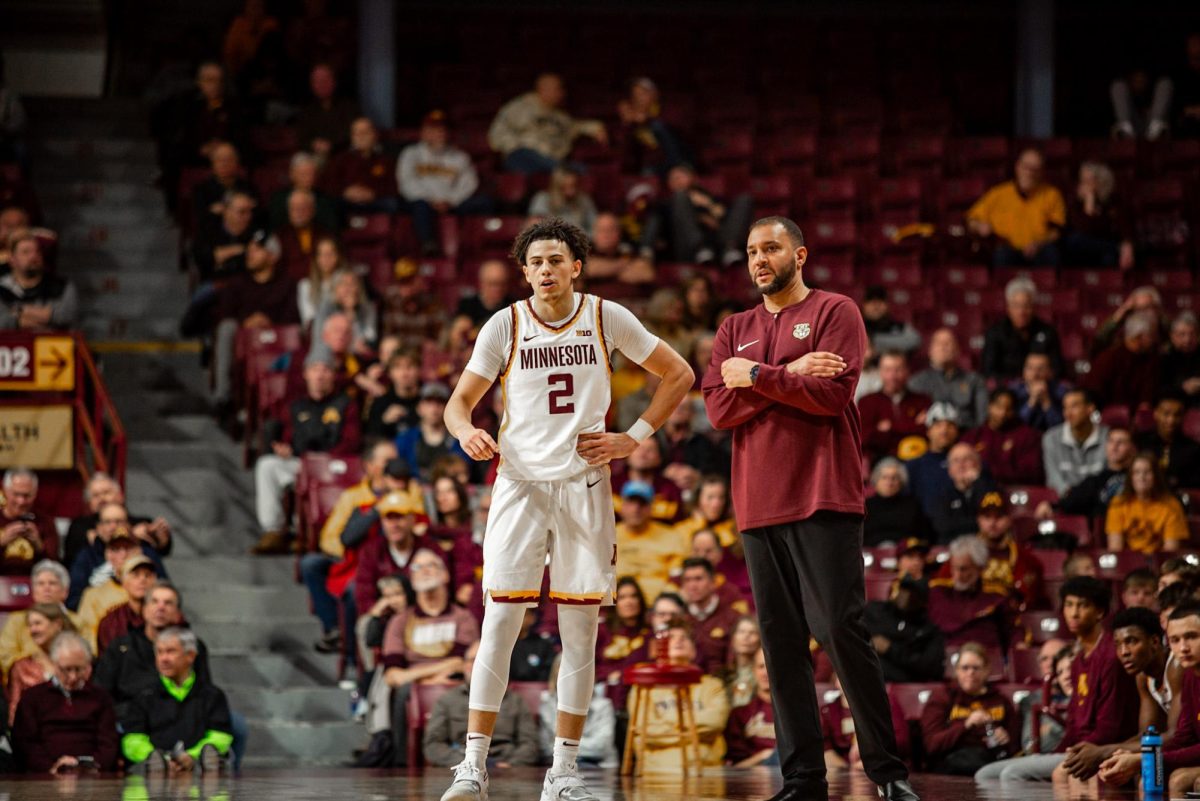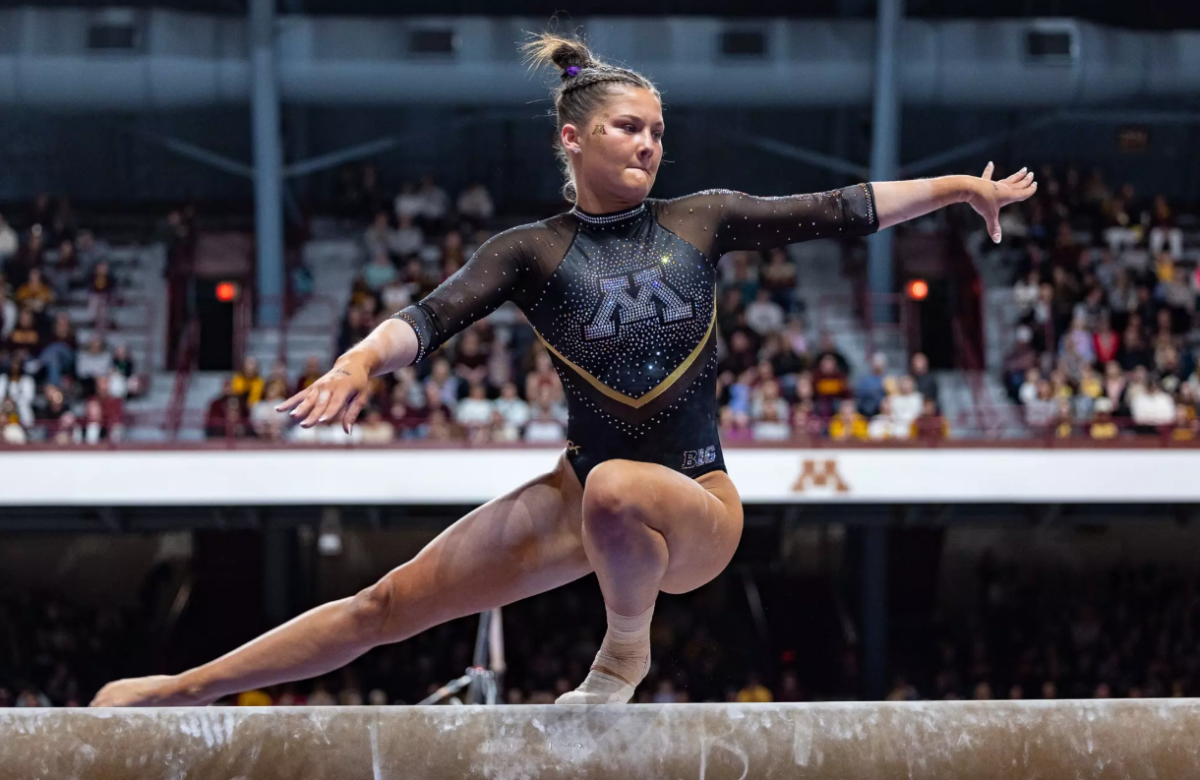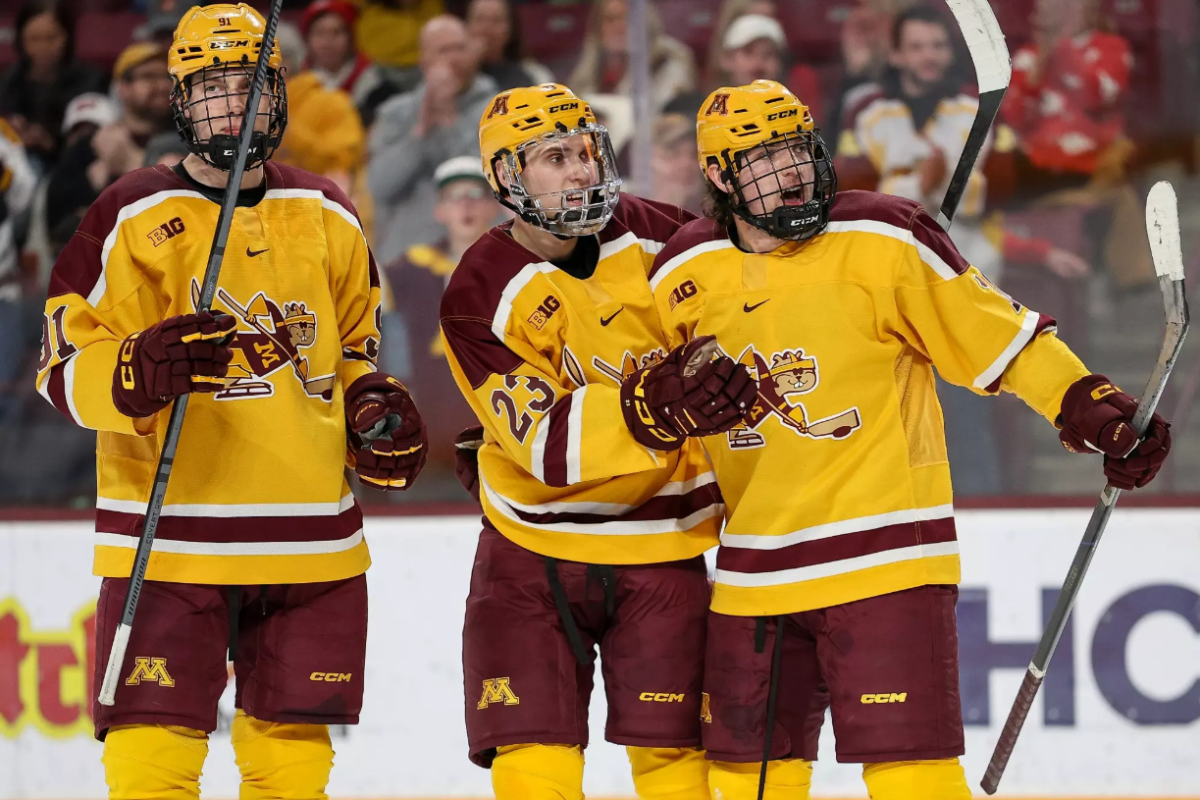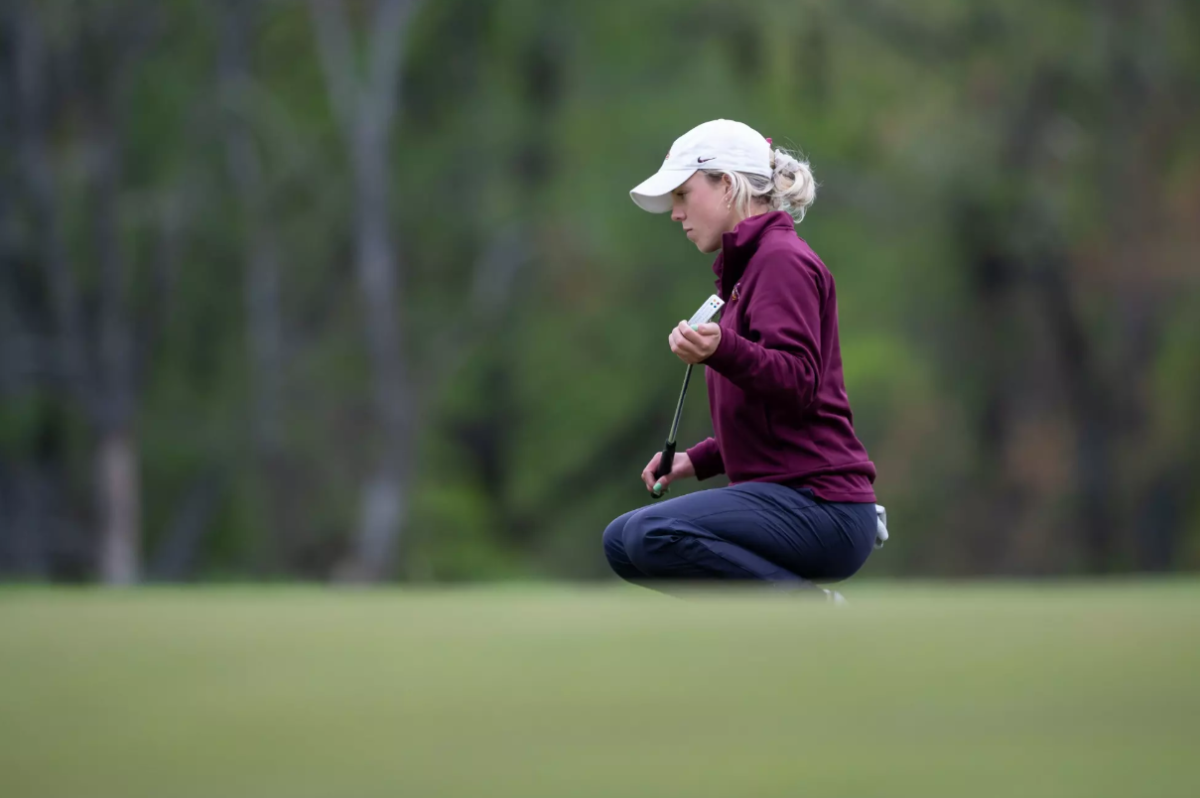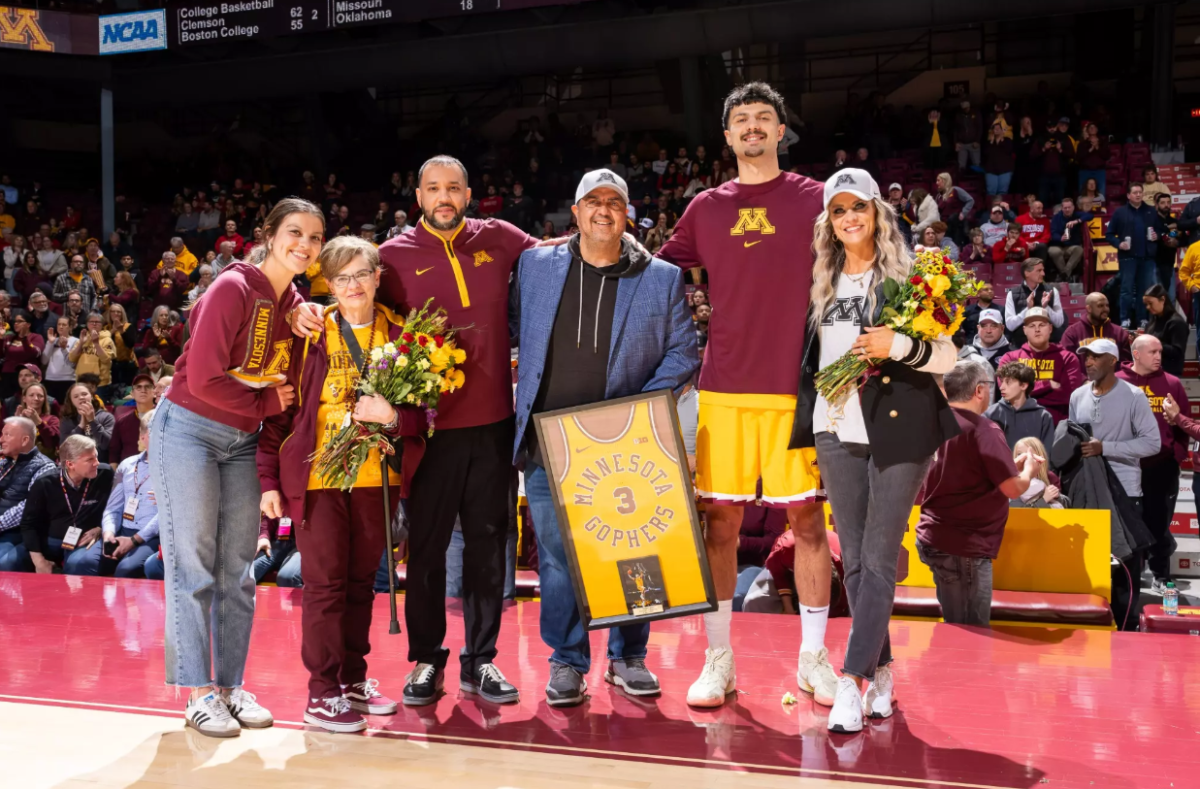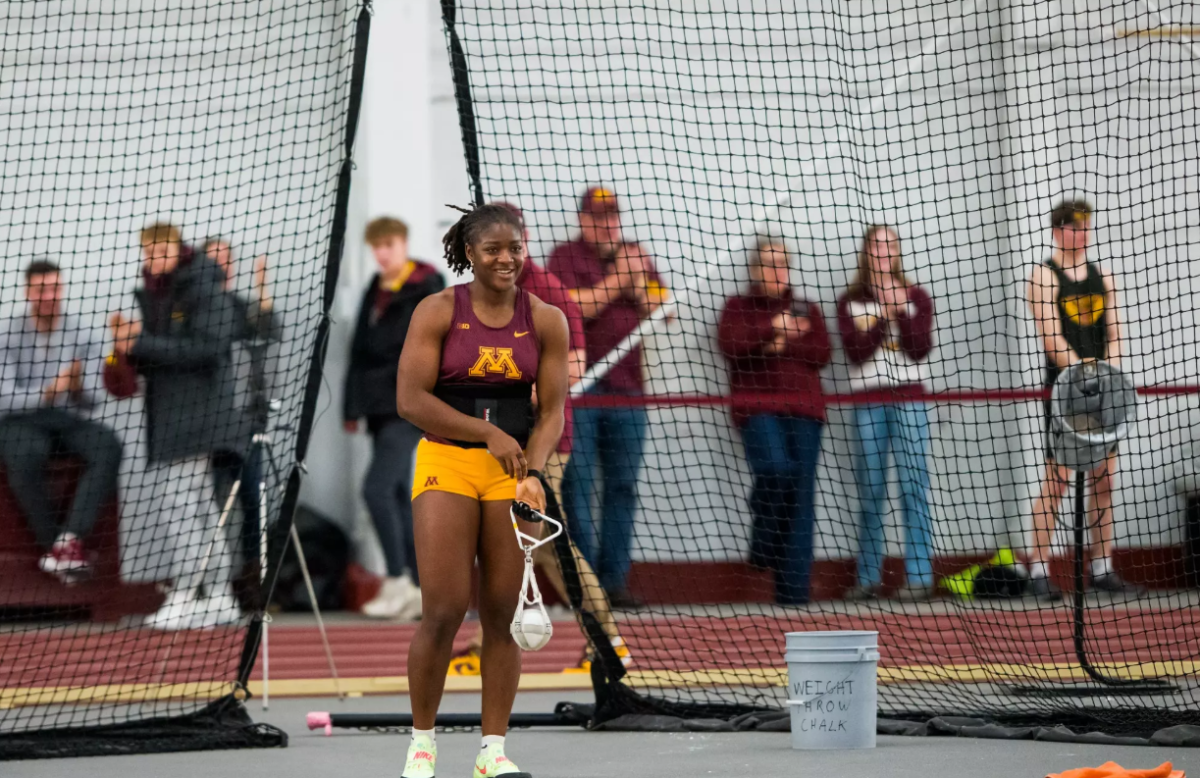Ask anyone in the media, and they’ll tell you Brock Lesnar is a nice guy.
It’s a good thing, because at 6-foot-3, 277 pounds of seemingly all muscle, not many would have the guts to interview him if he wasn’t friendly.
Lesnar took some time to talk to the Daily this week – he was as cordial as his reputation suggests – about the former Gopher’s career as a high-profile professional wrestler and his decision to join the Ultimate Fighting Championship, the world’s top mixed martial arts league.
Lesnar was a heavyweight national champion for the Gophers in 2000, but left before graduation to join World Wrestling Entertainment – “I copped out for the money,” he said – and now will be returning home to fight in “UFC 87: Seek and Destroy” at the Target Center Aug. 9.
For four and a half years as a pro wrestler, you held back your instincts to winÖ
Sometimes I did, anyway (laughs). You might hear different from some of the guys I worked with.
But what was it like going from the intense competition of collegiate wrestling to the scripted outcomes of professional wrestling?
As a pro I had a job to do. I was getting paid very well to do what I was doing. In order to collect my next paycheck, I had to follow the rules and the script. It became very stale to me, and that’s why I was only in it for four and a half years. I missed the competitiveness. No matter how hard I tried to go out of the curtain every night and get it in my head that “I’m competing tonight,” I still realized it’s purely entertainment. The rush of being in front of the people and the camera just didn’t cut it for me. I could care less about that aspect.
Was there much of a pay cut coming to UFC?
Not really. Kind of.
Olympic gold medalist Kurt Angle was a guy you “feuded” with, but you are two of the few accomplished amateurs who ended up at the pro level. Why?
As an amateur wrestler, you only have two avenues to go after college: the Olympics or professional wrestling. There is no pro amateur wrestling league. At least now the wrestling part can translate over to mixed martial arts and you can have a chance to make a paycheck doing something competitive. For me and Kurt, we had a job. A lot of the guys we wrestled with in college, those guys became coaches and didn’t have that opportunity, and both me and Kurt were thankful that we did. But (UFC) opens another avenue for guys like us.
How dangerous is a UFC match?
Just like football, basketball or hockey, the risk of getting injured in competition is there. But everybody that gets in the octagon is very well-trained. Also, in this sport, if I feel like my arm’s going to get snapped, I can tap out before I get injured. In other sports, I don’t have that option. If a linebacker’s coming across and I’m carrying the ball, I don’t have the opportunity to stop. I’ve been hurt more as a pro wrestler and as an amateur wrestler than I have in this. I was hurt more as a pro wrestler than anything else, because I worked 300 nights a year and they didn’t care if I was hurt or not.
Do you stay in contact with the Gophers coaching staff?
I do. Marty Morgan is my conditioning coach. I work out with (2007 graduate) Cole Konrad still. They’re all for the transition to UFC. (Former Gopher wrestler) Jacob Volkman made the transition and you’ve got a few other guys trying to make the transition. I think you’re going to see a lot of University of Minnesota wrestlers thinking about making the transition. I’ve asked Cole if he’d ever want to do it, and we’re involving him in my training camp now to see if he likes it or not. But regardless, for me it’s a workout because he’s last year’s NCAA champion, and not a lot of other fighters get that opportunity.
Do you think other high- profile pro wrestlers will follow you to mixed martial arts?
I highly doubt it, because the other high-profile pro wrestlers didn’t have my credentials, other than Kurt Angle. A lot of these guys, like your Undertaker or whatever, weren’t amateur wrestlers.
Being a wrestling guy, how hard has it been to learn the other facets of mixed martial arts?
I knew when I made this transition, I needed to find the right people to be trained in this sport and I chose the Minnesota Martial Arts Academy [in Fridley], and I’m bringing a lot of big heavyweights in to train with me. We don’t have a lot of them in Minnesota, so I’m flying people in for this camp. I’ve got eight guys that come in that are over 250 pounds to help me train for this fight.
You’re going to be 31 in July; does that make you one of the older fighters?
No it doesn’t actually, I’m about average. Some days I feel young, and some days not so much.


